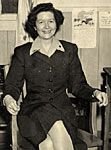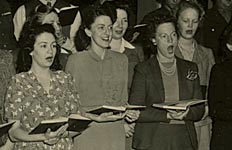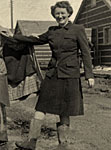
Highway Women: Not Recommended For Children
early days of the Alaska Highway...(view more details)
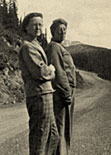
During the first few years of construction, men were not encouraged to bring their families to the north. Proper housing and services such as schools were lacking, and the construction phase was seen as short-term. Nonetheless, some women came north, lived in near-by squatter communities, and managed to get work. Many married civilian couples worked together in family businesses such as trucking, hauling and food catering. As more permanent maintenance camps were set up along the highway the value of having long term employees increased. Civilian contractors who brought their families were likely to stay longer. This also created a more equal balance between men and women in the territory and a more stable community.
Lack of services was still a problem, especially for children. There were no schools along the highway as of early 1945, but Yukon and U.S. authorities worked out an arrangement to satisfy maintenance camp families. The Yukon Government would provide a teacher and supplies if the U.S. would provide a furnished building and utilities such as heat and light. The U.S. authorities would also try to centralize families with school-age children in those camps with schools.
A group of women in housecoats and head scarves probably taken in one of the barracks assigned to female employees working for the Northwest Service Command. ca. 1942-1945 (view more details)
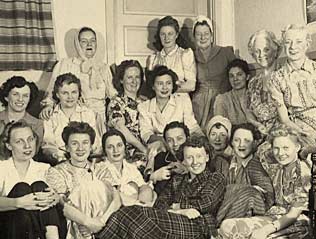
...Kluane Lake with mountains in the background...(view more details)
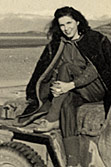
Women’s involvement in the construction of the Alaska Highway continues to be the subject of historical study and reinterpretation. In 1998 Dawn Nickel completed a Master of Arts thesis that reexamined the role of women in the construction of the highway and the reflections that these women had of their experiences. Ms. Nickel argues that the focus of other historians on the construction activities of men, and the assumption that women served only as cooks and cleaners to the work crews, has ignored the diverse and significant roles that women played on the Alaska Highway. (Yukon Archives. 971.903 NICK. Dawn Nickel. Realities and Reflections: Women and the Yukon Frontier during the Alaska Highway Period. Edmonton, Alberta: University of Alberta, 1998.)
